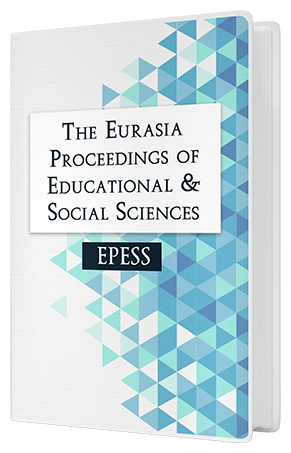Identifying Human Temperament and Character Type for E-Learning Needs Using a Fuzzy Logic Approach
DOI:
https://doi.org/10.55549/epess.1381970Keywords:
E-learning, Human temperament and charaqter type, Tests, Fuzzy logic, Individualization of e-learning.Abstract
Today, online training and counseling is becoming increasingly popular. This has been achieved through the use of various successful information and communication technologies and electronic tools - Electronic (ICTE). Therefore, significant changes are needed in the training process. People have different perceptions of information and different types of temperament. That is why the training process should be tailored to the needs of each. The training system should take into account that people have different styles of perceiving information according to the temperament and character type of the student-aplicant. This would reduce online training and increase its quality.Traditional psychometric tests are usually very long and difficult, based on a person’s opinion of themselves and thus, they give different results depending on the person’s mood. Also, depending on the mood and need, the person may be manipulated by possible answers. This is because the answers to such test questions are largely based on ongoing processes in consciousness. So from traditional tests there are other types of tests separately from questionnaires: drawing, colors, geometric figures, pictures, card games, numbers, scenarios, manuscript analysis, drawing and other tests. A special advantage of these types of tests is that they rely more on ongoing processes in the subconscious and are therefore more free to manipulate, while also requiring significantly less time and less dependent on mood.Autors task was to combine several other types of tests and create a free test-short program with the ability to present and process subjective information using modern fuzzy technology, which would allow us to determine the applicant's temperament and character type for e-learning and other needs.Downloads
Published
Issue
Section
License
Copyright (c) 2023 The Eurasia Proceedings of Educational and Social Sciences

This work is licensed under a Creative Commons Attribution-NonCommercial-ShareAlike 4.0 International License.
The articles may be used for research, teaching, and private study purposes. Any substantial or systematic reproduction, redistribution, reselling, loan, sub-licensing, systematic supply, or distribution in any form to anyone is expressly forbidden. Authors alone are responsible for the contents of their articles. The journal owns the copyright of the articles. The publisher shall not be liable for any loss, actions, claims, proceedings, demand, or costs or damages whatsoever or howsoever caused arising directly or indirectly in connection with or arising out of the use of the research material. All authors are requested to disclose any actual or potential conflict of interest including any financial, personal or other relationships with other people or organizations regarding the submitted work.




